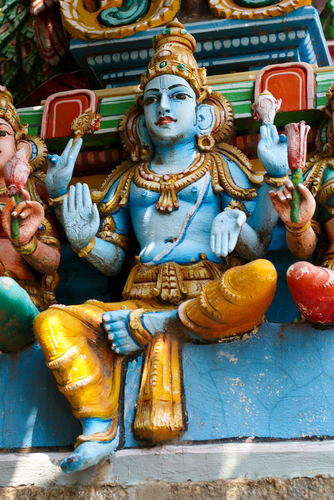Living in a culture where Christianity is the dominant religion, I don’t often come into contact with former Hindus or ex-members of other Eastern faiths. But there are atheists in every culture and society in the world, and they all go through the same intellectual and emotional struggles. I got a reminder of that in an e-mail the other day from an ex-Hindu atheist named Vikram who was seeking some advice on handling his own deconversion:
Dear Mr. Lee,
I have greatly enjoyed your book and articles on atheism. I feel that they have benefited me greatly in my own acceptance of being an atheist, albeit a closeted one. Unfortunately, I still have momentary lapses where I long for my former faith (Hinduism). I have been an atheist for over two years now. Since that time, I have had moments where I desperately wanted to revert to Hinduism, but the rational part of my mind simply could not accept it. For some reason, the emotional part still wants to be a devout believer, though. I have tried reading deconversion stories, watching videos, talking to a few atheist friends, and reading atheist novels, but nothing has worked. I still feel tormented by the idea that the universe is cold and apathetic.
As a former believer, do you have any advice on how to overcome this painful part of the deconversion? Any advice would be greatly appreciated.
This was my reply, in part:
It’s true that the universe doesn’t care about us and doesn’t respond to our wishes, and that can be a difficult realization to come to terms with. But it has real benefits as well. It means that there’s no such thing as prophecy or fate, no fixed destiny that was locked in for you at birth. It means that when life is hard or when disaster strikes, there’s no need to ask why, no reason to wonder if you did something to deserve it or if you’ve made a supernatural force angry at you; and the same applies when you see other people suffering or in need. Life is random in the truest sense, and strange as it may sound, that can be a source of comfort.
Something else I’ve often suggested to people in your situation is to read mythology, from as many different cultures as possible. Learn more about the beliefs of other religions, both the modern ones and the dead ones. I find that it makes it easier to leave one particular religion behind when you can put it in its proper context among the vast diversity of world beliefs. It may make Hinduism, for you, feel less like “the one true and immutable set of beliefs about reality” and more like “one particular set of beliefs that some people happen to agree with and others don’t”.
But because I’m not an expert on Hinduism and I figure there are people out there who can probably offer better advice than I can, I asked Vikram for permission to share his e-mail with all of you, and he agreed. What would you say to someone in this situation? What’s the best way to rid yourself of a lingering emotional attachment to a faith you can no longer give intellectual assent to?
Image: Statue of Krishna, avatar of the Hindu god Vishnu, at the Kapaleeshwarar Temple in Chennai, Tamil Nadu. Via Shutterstock.
